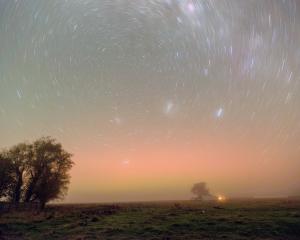
Landfall was the little magazine that could — and did.
"No literate New Zealander has any excuse for not reading Landfall," said its founder Charles Brasch in 1971, repeating with approval the verdict delivered by a reviewer of the very first issue, which appeared in 1947.
Coming back to New Zealand in 1946, after the end of World War 2 and nearly 20 years away, Brasch had to struggle with unease, alienation and anxiety — the sense of having arrived at the back of beyond: "This uneducated land," he called it, "with its barbarously ugly towns."
Brasch’s distaste for what he saw as smug complacency and "mindlessness" was worked out through his poetry, but he was also a cultural activist and benefactor who wanted to improve society.
Landfall’s high standards were driven by Brasch’s single-minded devotion. His editorial assistant Ruth Dallas, in her memoir Curved Horizon, recalled his dedication to excellence: "I read aloud the whole of Landfall, including stops, commas, italics, while Charles’s thin, fine-boned hand moved steadily down the galleys with ruler and pen, occasionally pausing to make exact corrections in the margin."
For Brasch, Landfall was a vocation, a cause, a crusade — and a rallying standard against the besieging Philistine hordes. Through Landfall Brasch knew everyone who was anyone in the literary community, seemingly keeping up a correspondence with each bit-part player in the nation’s cultural narrative during the 1950s and ’60s, while also preaching sermons to the converted on the values of civilisation from the pulpit of Landfall’s Editorial Notes.
Most literary phenomena — literary movements, writing collectives, literary magazines and journals trying to create and promote an original or distinctive form of expression — occur in short bursts: one or two decades, then the core generational energies start to flicker and fade out, or to ossify. Landfall has continued decade after decade to be an energetic go-to guide, the leading literary and arts journal, by virtue of being a vehicle for high-culture communication remade by many hands, passing along the editorial baton as in a relay race.
Landfall as a concept has shown a terrific capacity to refresh itself, to reinvent itself over the years. This it continues to do, even as ideological notions of nationalism versus internationalism, of cultural cringe versus cultural assertion, have moved on from fixations on melting-pot assimilation, with minorities invisible, to awareness of latter-day multiculturalism and global diasporas and a celebration, or acknowledgement at least, of cultural differences.
Landfall began reflecting this cultural pluralism, the emergence of identity politics and so on, in the 1980s and previous editors such as Chris Price in the 1990s and Justin Paton in the 2000s built on this revamped model.
We still follow Brasch’s formula today, in that we showcase New Zealand and South Pacific artists and writers, and we emphasise writing that explores or critiques local culture. Reviews have always been important in Landfall: Brasch understood their value from the beginning. It wasn’t necessary to agree, but it was important to debate and discuss and wrangle over what constituted culture and why it was important. Important considerations for Landfall now include how to create accessible and relevant literary commentaries, and balanced commentaries, for people who mostly read online — people who may not think about books other than as electronic content. But Landfall will continue to be seen as it always has on coffee tables and in book stores, libraries, on studio shelves and bedside tables.
Landfall Review Online aims to be a reliable point of reference: consistent and explicable in its choices, preferences, rejections and omissions. The LRO commentariat — consisting of a wide range of reviewers from all round New Zealand as well as reviewers with New Zealand connections overseas — maintains the dignity and authority, the measured approach, the essentially sober tone that Landfall has endeavoured to pursue in the printed format in line with the core principles established by Brasch 70 years ago.
Above all, the slightly longer review, or short essay format, is pursued as an ideal. Such reviews offer opportunities for a polemical edge that can then be justified by examples from the text; such reviews also allow for more elaborate lines of questioning or tracing, and also the opportunity to offer answers to such questioning.
However, although an LRO — or indeed a Landfall review — may be the first critical words on a new publication, they should not be the final words. A review suggests the way into a given text, but not necessarily the way out.
It’s important that New Zealand culture has a variety of literary magazines to represent a wide range of voices. The aim of Landfall is to showcase the best new writing of all kinds from established writers and also exciting new talents.
Brasch gave Landfall editors three considerations to navigate by: heritage (literary and artistic), discovery (fresh, new, adventurous artistic endeavour) and generosity (supporting good work as much as possible). All these in a way are implied by the name to which a succession of editors has remained true.
• As part of the 70th anniversary celebration of Landfall, panel discussions were held during the recent Dunedin and Auckland Writers and Readers Festivals.













